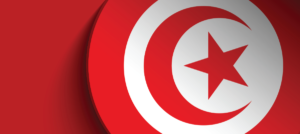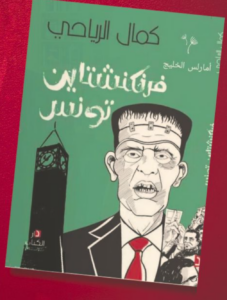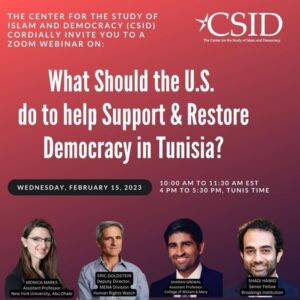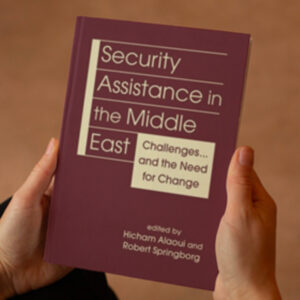
POMED
President Kais Saied bears the primary responsibility for breaking Tunisia’s young democracy, says Daniel Brumberg, Director of Democracy and Governance Studies at Georgetown University.
But a postmortem of the factors that helped set the stage for his July 25, 2021 self-coup is still necessary. After all, what Saied has done—with the backing of conspiracy peddlers on Facebook—is reflect and amplify many Tunisians’ disenchantment with the country’s political leaders. Precisely because his political project builds on this loss of hope, an accounting of Tunisia’s democratic experiment can help provide a point of departure for any future efforts by veteran and new leaders to revive and rebuild a pluralist democracy, he writes for the Arab Center Washington DC:
As in Iraq and Sudan, the power sharing deals that the US has promoted—and sometimes celebrated—ended up prolonging rather than overcoming conflicts. The United States has yet to figure out how to avoid this outcome by helping rivals to move beyond the limits of a fragile consensus that has undermined the legitimacy of the very elites it has backed. This does not mean that the US should retreat from supporting democracy and human rights in the Middle East. But it needs to pursue this endeavor with both eyes open, rather than downplaying signs of trouble. RTWT
 As my research has shown, even as Tunisians have become ambivalent about the constitutional balance of powers, the vast majority have remained deeply attached to the right to criticize their leaders, notes Nate Grubman, a teaching fellow at Stanford University’s Civic, Liberal, and Global Education (COLLEGE). Shortly after Saïed’s July 2021 coup, Kamel Riahi wrote the essay from which his new book The Tunisian Frankenstein gets its title. While many Tunisians cheered the creature they had created as Saïed destroyed the institutions they blamed for their disappointments, Riahi warned presciently that the creature, like Victor Frankenstein’s, would one day turn on its creators, he writes for POMED, a partner of the National Endowment for Democracy (NED).
As my research has shown, even as Tunisians have become ambivalent about the constitutional balance of powers, the vast majority have remained deeply attached to the right to criticize their leaders, notes Nate Grubman, a teaching fellow at Stanford University’s Civic, Liberal, and Global Education (COLLEGE). Shortly after Saïed’s July 2021 coup, Kamel Riahi wrote the essay from which his new book The Tunisian Frankenstein gets its title. While many Tunisians cheered the creature they had created as Saïed destroyed the institutions they blamed for their disappointments, Riahi warned presciently that the creature, like Victor Frankenstein’s, would one day turn on its creators, he writes for POMED, a partner of the National Endowment for Democracy (NED).
Tunisia needs a clear political plan that encompasses a framework for productive political competition and a sound economic vision, according to a new analysis.
To enter into the phase of democratic consolidation – defined as the moment of political, economic and societal stability when authoritarian rule begins to diminish – Tunisian elected authorities and the international community must address rising public demands, which emanate from across all socio-economic classes, for wealth redistribution and sound fiscal policy reform, says analyst Laryssa Chomiak.
More effective and transparent public spending will alleviate issues of public trust in all aspects of governance. Reconstructing trust in new democratic institutions is key and also requires a concerted effort to build democracy from the bottom up, particularly in marginal and impoverished areas where socio-economic ills are deeply entrenched, and where political contention is rampant and highest, she writes for the German Development Institute (IDOS).
 Tunisian democracy is dying. If there was ever any doubt, the last few months have revealed to all that President Kais Saied’s moves on July 25, 2021, were a coup d’état, say Brookings analysts Shadi Hamid and Sharan Grewal. Tunisia is no longer classified as free by Freedom House or as a democracy by the Economist Intelligence Unit, and it has tumbled nearly 50 spots since 2021 (73 to 121) in Reporters Without Borders’ Press Freedom Index.
Tunisian democracy is dying. If there was ever any doubt, the last few months have revealed to all that President Kais Saied’s moves on July 25, 2021, were a coup d’état, say Brookings analysts Shadi Hamid and Sharan Grewal. Tunisia is no longer classified as free by Freedom House or as a democracy by the Economist Intelligence Unit, and it has tumbled nearly 50 spots since 2021 (73 to 121) in Reporters Without Borders’ Press Freedom Index.
In view of Saied’s escalating crackdown, they assembled a wide array of former diplomats, senior officials, and other members of the policy community to sign an open letter calling for a reorientation of U.S. policy toward Tunisia. You can read the letter here: https://tunisiaopenletter.com/
 Why, given the enormous resources spent by the US and Europe on security assistance to Arab countries, has it led to so little success? Stanford’s CDDRL asks. Can anything be done to change the disheartening status quo? Addressing these thorny questions, the authors of a new state-of-the-art assessment evaluate the costs and benefits to the main providers and recipients of security assistance in the MENA region and explore alternative strategies to improve outcomes for both.
Why, given the enormous resources spent by the US and Europe on security assistance to Arab countries, has it led to so little success? Stanford’s CDDRL asks. Can anything be done to change the disheartening status quo? Addressing these thorny questions, the authors of a new state-of-the-art assessment evaluate the costs and benefits to the main providers and recipients of security assistance in the MENA region and explore alternative strategies to improve outcomes for both.
Hicham Alaoui, Robert Springborg, Lindsay Benstead, Glenn E. Robinson, and Sean Yom join ARD discuss their recently released book, Security Assistance in the Middle East: Challenges … and the Need for Change (Lynne Rienner, 2023). To order, click here.
As in #Iraq and #Sudan, the power sharing deals that the US has promoted—and sometimes celebrated—ended up prolonging rather than overcoming #Tunisia‘s conflicts, @derboland writes for @ArabCenterWDC. https://t.co/wbN6Fytsx5
— Democracy Digest (@demdigest) May 12, 2023







